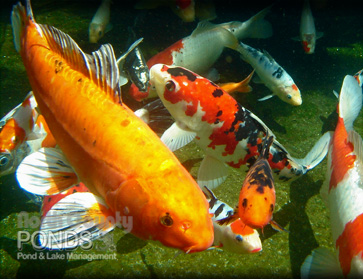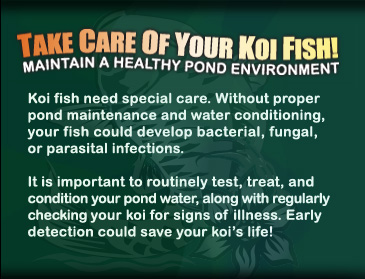Cardiff pond maintenance, Carlsbad pond maintenance, Carmel Valley pond maintenance, Del Mar pond maintenance, Encinitas pond maintenance, La Costa pond maintenance, LaJolla pond maintenance, Leucadia pond maintenance, North County pond maintenance, Point Loma pond maintenance, Poway pond maintenance, Rancho Santa Fe pond maintenance, San Diego pond maintenance, and San Marcos pond Maintenance. North County Ponds and Rancho Santa Fe pond service. North County Ponds 760-710-1632 P.O. Box 8053 Rancho Santa Fe, California 92067. North County Ponds is north San Diego's best pond cleaning and pond maintenance service pond cleaning service. For a clean, healthy, beautiful pond, our pond maintenance is second to none. We are pond service professionals and are passionate about clean, healthy koi ponds. Let North County Ponds care for your koi pond. Keep your pond beautiful! Call us today for a free pond consultation: North County Ponds (760-710-1632) Dirty pond? North County Ponds is the answer for clearer, cleaner pond water, pond muck removal, aquatic plant management, pond algae control, pond filter and pond pump maintenance, pond equipment installation, koi health, pond health, and general pond and lake management. North County Ponds services the greater area of north San Diego county including: Rancho Santa Fe ponds, Del Mar ponds, La Jolla ponds, Carmel Valley ponds, Solana Beach ponds, Encinitas ponds, Carlsbad ponds, and Fallbrook ponds.

 |
 |
|---|---|
KOI FISH CARE: The true origins of koi fish is still a mystery today. Nobody knows exactly where today’s common koi first originated. It is believed the Cyprinus Carpio (colorful carp) was developed in southwestern Asia. Through trade and the use of natural waterways, koi fish eventually migrated their way into China. With continued trading, the koi fish became extremely popular as a center piece in Japanese culture and folklore. It was in the 19th century when asian rice farmers learned how to breed varieties of carp, developing beautiful koi fish with distinctive colors and patterns. |
|
Today, koi enthusiasts, koi hobbyists, and pond owners take immense pride in their pet fish. The joy of watching your koi develop into a beautiful prize specimen takes hard work and special care. Pending on the season, your koi will greatly benefit from regimented nourishment and balanced pond water to ensure a long and healthy life. |
|
SPRING KOI CARE: Varying pond water temps during spring months can wreak havoc on your koi’s immune system. When pond temperatures drop below 50ºF, your koi can become completely defenseless against harmful bacteria. Fungal and parasitic koi infections are most common during spring. After a long, cold winter, your koi need nutrients to build-up their immune systems. A highly digestable diet with loads of Vitamin C is recommended. |
|
SUMMER KOI CARE: Summer season is the growing season for your koi. Increased pond water temps means more koi activity. Water temps between 70º-75ºF boost your koi’s metabolism and strengthen their immune system. Feed your koi 2x daily and have adequate filtration to handle the excess fish waste loads. Your koi are much more active in the summer, so it’s a good idea to continually test your ammonia levels. If treating your koi pond with conditioners or meds be sure there is adequate levels of dissolved oxygen. |
|
FALL KOI CARE: As the pond temps drop, so does koi activity. Keep a close eye out for parasites, as immune systems will start to deteriorate and koi become more susceptible to disease and infection. It is important to avoid any extra stress on your koi as they go through this transition towards winter. Do not over feed at this time. Digestive systems also weaken with colder pond water temps below 60ºF. A wheat germ based diet is strongly recommended. |
|
WINTER KOI CARE: When water temps drop bleow 50ºF, koi slow way down. Koi fish go slightly dormant in the winter and use very little energy. It is not a good idea to attempt to feed koi during the winter season. Koi are not able to digest food in cold water. If food is ingested, it will likely rot in the koi’s stomach. This can lead to serious infections. If your pond is in a colder climate, keep pond water temps above 34ºF. It is common for koi to sit on the pond floor during winter, where the water is warmest. |
|
KOI HANDLING: Avoid any unnecessary handling of your koi fish. If you have to move or medicate your koi, do so with extreme care. Koi lose electrolytes rapidly when stressed. Stress can cause ulcers and internal bleeding. Use an appropriate sized net for the size and weight of your koi. |
|
KOI BEHAVIOR: Get to know your koi! The best way to spot an illness is by observing abnormal behavior. If your koi is sick you may see signs of irregular swimming patterns, loss of appetite, rubbing or flashing, or visible skin lesions. Early detection and early treatment could save your koi’s life. |
|
KOI FEEDING: Feed your koi based on the season. Use vitamin and protein rich foods during spring and summer. Feed wheat germ based food during fall and winter. If water temps are below 50ºF, do not feed at all. Watch your feeding amounts and be careful not to overfeed. Overfeeding your koi fish can lead to toxic ammonia and nitrite levels. |
|
| If your pond is new or old, large or small, North County Ponds is trained in a variety of pond care services including regular pond maintenance, on-call pond services, pond clean-outs, complete filter system installs, pond water treatments, system cleanings, pond sealing, koi medicating, koi and fish care, algae control, aquatic plant care, and all other aspects of pond and lake management. Call North County Ponds at 760-710-1632 for questions, pricing info, or to schedule a free pond consultation. | |

All Rights Reserved / Copyright ©2009 North County Ponds / Property Of North County Ponds